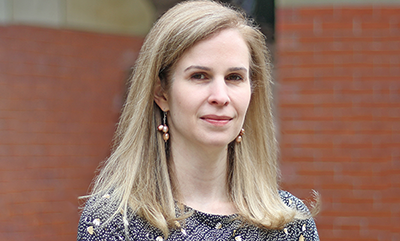Professor Named Vice Chair of Environment and Reproduction Group.

Lauren Wise, professor of epidemiology, has been appointed vice chair of the Environment and Reproduction Special Interest Group (ERSIG) of the American Society for Reproductive Medicine (ASRM).
Wise will assume the position on October 6 at ASRM’s Scientific Congress & Expo in Denver, Colorado.
The ERSIG’s mission is to shed light on the effect of environmental factors on reproductive health through research, education, and advocacy.
As vice chair, Wise will design post-graduate courses and sessions on environmental health for ASRM meetings. Her new position is the start of a five-year commitment, during which she will advance to the roles of chair-elect, chair, immediate past chair, and chair.
Wise is a long-time member of ASRM and a regular attendee of the organization’s annual meeting. She previously served as chair of the ASRM Fibroid Special Interest Group from 2015 to 2016.
“It’s an honor to serve on the ERSIG board,” Wise says. “ERSIG has been dedicated to advancing science on the environment and reproductive health. I look forward to supporting their mission of improving education, research, clinical practice, and advocacy in the field.”
Wise joined the Department of Epidemiology in 2004 after receiving a doctoral degree at Harvard T.H. Chan School of Public Health. She has an interest in reproductive and perinatal epidemiology, and her research involves the study of benign gynecologic conditions, delayed conception, and adverse pregnancy outcomes. Wise is principal investigator of Boston University Pregnancy Study Online (PRESTO), an NIH-funded research study that examines whether lifestyle factors such as diet, exercise, and medication use have an impact on fertility and pregnancy.
ASRM is internationally recognized for its multidisciplinary work in the field of reproductive medicine. Founded in 1944, the nonprofit organization’s member physicians were the first doctors to perform many of today’s standard reproductive procedures, including in vitro fertilization and donor insemination.